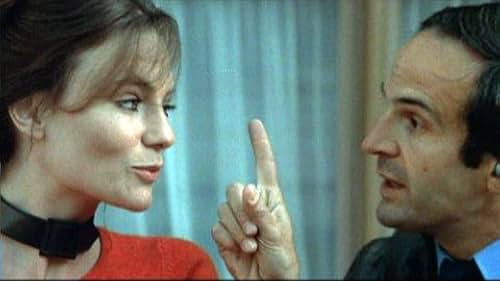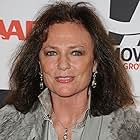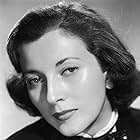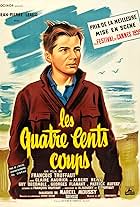A committed film director struggles to complete his movie while coping with a myriad of crises, personal and professional, among the cast and crew.A committed film director struggles to complete his movie while coping with a myriad of crises, personal and professional, among the cast and crew.A committed film director struggles to complete his movie while coping with a myriad of crises, personal and professional, among the cast and crew.
- Won 1 Oscar
- 13 wins & 7 nominations total
Jean-Pierre Léaud
- Alphonse
- (as Jean-Pierre Leaud)
Xavier Saint-Macary
- Christian
- (as Xavier Macary)
- Director
- Writers
- All cast & crew
- Production, box office & more at IMDbPro
Storyline
Did you know
- TriviaAfter the release of this film, Jean-Luc Godard sent François Truffaut a letter criticizing the way the film depicts filmmaking and called him a liar for it. Godard also criticized him for pandering to the mainstream, something they were both critical of filmmakers doing when they were critics at Cahiers du Cinema. Additionally, Godard went on to say that because the film was not truth and because the film was a hit, that they should make a film together about the filmmaking process; Truffaut would produce, Godard would direct, and they would co-write the script. Godard's return address was of Jacques Daniel-Norman, a virtually unknown filmmaker whose films were loved by Truffaut and Godard when they were film critics, hinting at a return to a simpler time. Ignoring this hint, Truffaut was insulted by the letter and responded by telling Godard that he is demeaning and pretentious and that he pretends to be poor, when in reality he was the wealthiest of their circle of friends. The response also included a line in which Truffaut flat out calls Godard a "shit". It is believed that this quarrel is what ended their lifelong friendship. Godard later regretted writing this letter, especially after Truffaut's early death in 1984 and went as far as to write a moving tribute to his former friend.
- GoofsSeveral takes are wasted trying to get a cat to drink milk from a tray. Eventually Joelle brings in "the studio cat" to do the scene. But the cat that drinks the milk is actually a third, different cat.
- Crazy creditsThis film is dedicated to Lillian Gish and Dorothy Gish.
- ConnectionsEdited into Day for Night: A Conversation with Jaqueline Bisset (2003)
Featured review
Many movies have been made about moviemaking but none surpass Day for Night (La Nuit Américaine) for its humanity, its warmth and its genuine feel for Director François Truffaut's approach to his art and craft. The film follows Truffaut, in effect playing himself, as he makes a somewhat banal little romance called "Meet Pamela" (Je Vous Présente Pamela) with Jacqueline Bisset, Jean Pierre Aumont, Valentina Cortese (who was nominated for and should have won the Academy Award for Best Supporting Actress) and Jean-Pierre Léaud. It conveys the chaos of filmmaking process in front of and behind the camera and behind the scenes.
There are occasional false notes - the production manager's wife who insists on being on the shoot and watches disapprovingly as the cast and crew move in and out of each other's rooms, as funny as she is, simply doesn't ring true to the film - but in so many more cases, the details, the emotions, the mad combination of giddiness, passion and meticulousness that are needed to make a film, are captured so as to make you forget the slightly dated early 70s look. And Jacqueline Bisset is timelessly stunning in this film.
Minor notes: The movie launched the film career of Nathalie Baye as the continuity girl - her first major role; Graham Greene, the great English novelist (The Quiet American, Brighton Rock, etc.) had an uncredited cameo as the Insurance Agent - Truffaut directed the scene but did not know who the actor was until after the shot was in the can; Maurice Séveno, who appears briefly as a TV reporter, was a well-know French TV news anchor in the 60s and 70s; the score by Georges Delerue, who collaborated on many Truffaut movies, is lovely without being cloying.
There are occasional false notes - the production manager's wife who insists on being on the shoot and watches disapprovingly as the cast and crew move in and out of each other's rooms, as funny as she is, simply doesn't ring true to the film - but in so many more cases, the details, the emotions, the mad combination of giddiness, passion and meticulousness that are needed to make a film, are captured so as to make you forget the slightly dated early 70s look. And Jacqueline Bisset is timelessly stunning in this film.
Minor notes: The movie launched the film career of Nathalie Baye as the continuity girl - her first major role; Graham Greene, the great English novelist (The Quiet American, Brighton Rock, etc.) had an uncredited cameo as the Insurance Agent - Truffaut directed the scene but did not know who the actor was until after the shot was in the can; Maurice Séveno, who appears briefly as a TV reporter, was a well-know French TV news anchor in the 60s and 70s; the score by Georges Delerue, who collaborated on many Truffaut movies, is lovely without being cloying.
Details
- Release date
- Countries of origin
- Official site
- Languages
- Also known as
- Ameriška noč
- Filming locations
- Aéroport Nice-Côte d'Azur - Nice, Alpes-Maritimes, France(press conference)
- Production companies
- See more company credits at IMDbPro
Box office
- Gross US & Canada
- $509
- Opening weekend US & Canada
- $11,206
- Apr 25, 1999
- Gross worldwide
- $509
Contribute to this page
Suggest an edit or add missing content



































